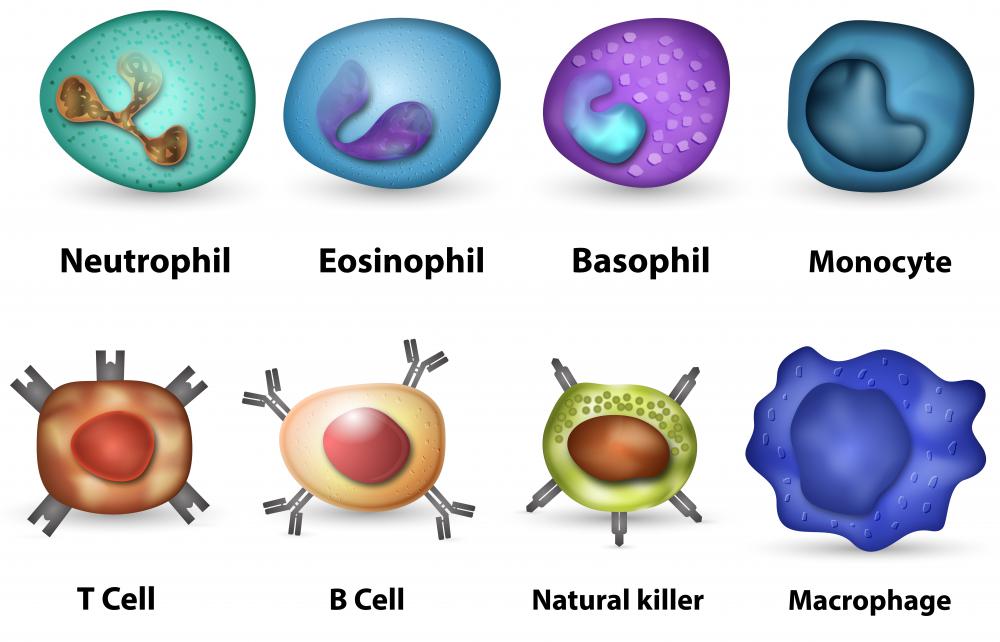At WiseGEEK, we're committed to delivering accurate, trustworthy information. Our expert-authored content is rigorously fact-checked and sourced from credible authorities. Discover how we uphold the highest standards in providing you with reliable knowledge.
What Is Kostmann Syndrome?
Kostmann syndrome is an inherited disease in which the number of certain white blood cells, known as neutrophils, is too low. As these white blood cells help people fight invading bacteria, patients with Kostmann syndrome are unusually vulnerable to infections. Without treatment, most babies born with the disorder would not survive their first year. Treatment with a substance that stimulates neutrophil production allows patients to survive into adulthood. The condition is also known as Kostmann's syndrome, Kostmann disease and severe congenital neutropenia.
Patients with Kostmann syndrome inherit an abnormal gene from each parent. The disease only develops in people who have two copies of the gene, which means it is classed as an autosomal recessive type condition. Until they produce a child with the disorder, both parents will remain unaware that they are carrying a gene for Kostmann syndrome, as carriers do not experience any symptoms of the disease. The abnormally low number of neutrophils seen in people with Kostmann syndrome is known as neutropenia.

Normally, the disease begins to make its presence known in the early years of life. Babies who are affected may develop fevers, and infections may arise in different parts of the body such as the skin, lung or gut. Abscesses or boils could occur, and infants might appear unusually irritable. Typically, the infections seen are all caused by bacteria, and the number of infections caused by fungi and viruses are no greater than usual.

The diagnosis of Kostmann syndrome involves taking blood samples and counting the number of neutrophils present. Even though neutrophil numbers might be low, the overall number of white blood cells could appear normal, as certain other white cells could increase in amount at the same time. For this reason, blood cell counts are analyzed in detail. A bone marrow sample may be required to make a firm diagnosis, as blood cells are manufactured inside the marrow. This sample generally shows that neutrophils are not maturing properly.

Doctors treat Kostmann syndrome by administering a substance known as granulocyte colony-stimulating factor. This encourages the bone marrow to produce greater numbers of neutrophils, boosting the amount of neutrophils in circulation. Patients may then become able to fight off bacterial infections. Where such treatment does not work, a bone marrow transplant may be necessary, providing new marrow with the ability to produce neutrophils normally. Although treatment can prolong life for Kostmann syndrome patients, they have an increased risk of developing leukemia compared with the population as a whole.
AS FEATURED ON:
AS FEATURED ON:















Discuss this Article
Post your comments